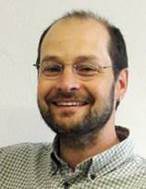Chair of Limnology (Aquatic Ecology)
 © TB
© TB
Professor
NameMr Prof.Dr.rer.nat.habil. Thomas U. Berendonk
Institutsdirektor
Send encrypted email via the SecureMail portal (for TUD external users only).
Certificate of DFN-PKI for encrypted email communication.
Postal address:
TUD Dresden University of Technology
Department Hydrosciences
Institute of Hydrobiology
01062 Dresden
Parcel address:
TUD Dresden University of Technology Institute of Hydrobiology Sekretariat, 1.OG Raum 60/61 Zellescher Weg 40
01217 Dresden
Secretary
Tel.: +49 351 463-34956
Fax: +49 351 463-37108
limnologie-at-tu-dresden.de
Motivation
In the past my interest has focussed on evolutionary processes in ecological systems or communities. My work has focused rather on important processes than on certain organisms. Usually, the organisms are chosen to their suitability to test certain hypotheses. This approach led to a high number of different organisms, which became subject of my interest. I work and have worked with fish (e.g. barbel, Barbus, mullet, Thymallus thymallus); mussels (pearl mussel, Margeritifera); insects (phantom midge, Chaoborus; a marine intertidal midge, Clunio, mosquitos, Aedes, Anopheles); protists (Paramecium, Coleps) and bacteria (e.g. Escherichia coli, Pseudomonas fluorescens, Enterobacter areoginosa).
The topics I have worked with relate to a broad range of questions, but the general concept behind these questions is the endeavour to understand how anthropogenic impacts change natural freshwater communities and how this change ultimately affect ecosystem functions. I focus especially on those processes that bridge evolutionary and ecological dynamics. In order to grasp this complexity, researchers need to investigate how anthropogenic drivers influence genetic dynamics within natural and novel communities and how these changes in turn affect ecosystem functions.
To my mind, one of the most relevant anthropogenic drivers is the current increase in environmental temperature as it directly influences the physiology and dynamics of many ecological systems. At the same time many ecological systems have already been changed by anthropogenic pressures and consist of the so called novel communities. Therefore, one of the pressing questions that current research needs to answer is how these anthropogenic drivers, such as temperature, will influence these novel communities and their ecosystem functions.
Recently another topic has been added to the research topics of our Institute: The fate of antibiotic resistant bacteria and their genes in the urban aquatic environment. This topic is somewhat different than the above formulated topics. Because current research raises the question if with the release of these antibiotic resistant bacteria into the aquatic environment human society increases the evolution of new resistant bacteria also in human society and therefore causes a direct threat to its health.
Finally I believe strongly that current scientific questions need to be tackled with scientific teams, ideally at the international level, consequently I invest a considerable amount of time to work in these networks and also to maintain a workgroup, which consists to a significant part of PhD students or postdocs from a variety of different nations.
